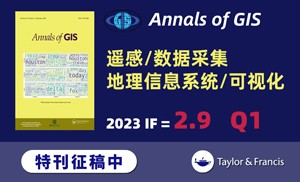当前位置:
X-MOL 学术
›
The Journal of Criminal Law
›
论文详情
Our official English website, www.x-mol.net, welcomes your
feedback! (Note: you will need to create a separate account there.)
Court Martials, Lay Membership and the Validity of Their Constitution: Gunn v Service Prosecuting Authority [2019] EWCA Crim 1470
The Journal of Criminal Law ( IF 0.6 ) Pub Date : 2020-03-17 , DOI: 10.1177/0022018320912619 Neil Parpworth
The Journal of Criminal Law ( IF 0.6 ) Pub Date : 2020-03-17 , DOI: 10.1177/0022018320912619 Neil Parpworth
The appellant, a member of the Royal Air Force (RAF), was convicted by a Court Martial of having committed a criminal offence, that is, a battery, contrary to s 42 of the Armed Forces Act 2006 and s 39 of the Criminal Justice Act 1988. His punishment was a reduction in rank from Sergeant to Corporal. The appellant had initially been offered a Court Martial with an RAF Board. However, this had been declined on the basis that the date was not convenient for his counsel. The Court Martial therefore subsequently proceeded before an Army Board. The appellant was granted leave to appeal against his conviction on a single ground, namely whether the Board of lay members had jurisdiction to hear the case. In granting leave to appeal, Hallett LJ had been ‘troubled by the interplay between the Queen’s Regulations for the RAF as to the construction of the Board and the provisions of the Armed Forces Act’. Although the Court of Appeal appreciated that the Regulations ‘do not have the force of primary legislation’, it was ‘not clear’ to it what force they did have. The principal issue for the Court of Appeal to consider was, therefore, whether a Court Martial trying a member of the RAF was properly constituted if the Board of lay members comprised only of Army personnel. In addressing this issue, it was necessary for the Court to determine the legal status of the Queen’s Regulations and to examine the interrelationship between their relevant provisions and those of the 2006 Act.
中文翻译:

军事法庭、非专业成员及其宪法的有效性:Gunn v Service Prosecuting Authority [2019] EWCA Crim 1470
上诉人是皇家空军 (RAF) 的成员,被军事法庭判定犯有刑事犯罪,即殴打,违反了 2006 年武装部队法第 42 条和刑事司法第 39 条1988 年法案。他的惩罚是将军衔从中士降为下士。上诉人最初获得了皇家空军委员会的军事法庭审判。然而,这被拒绝了,理由是日期对他的律师来说不方便。因此,军事法庭随后向陆军委员会提起诉讼。上诉人获准就其定罪提出上诉,理由单一,即非专业成员委员会是否有权审理此案。在准予上诉许可时,Hallett LJ 一直“对英国皇家空军关于委员会结构的女王条例与武装部队法案的规定之间的相互作用感到不安”。尽管上诉法院承认该条例“不具有主要立法的效力”,但它“不清楚”它们确实具有何种效力。因此,上诉法院要考虑的主要问题是,如果非专业成员委员会仅由陆军人员组成,审判英国皇家空军成员的军事法庭是否适当构成。在解决这个问题时,法院有必要确定女王条例的法律地位,并审查其相关条款与 2006 年法案之间的相互关系。尽管上诉法院承认该条例“不具有主要立法的效力”,但它“不清楚”它们确实具有何种效力。因此,上诉法院要考虑的主要问题是,如果非专业成员委员会仅由陆军人员组成,审判英国皇家空军成员的军事法庭是否适当构成。在解决这个问题时,法院有必要确定女王条例的法律地位,并审查其相关条款与 2006 年法案之间的相互关系。尽管上诉法院承认该条例“不具有主要立法的效力”,但它“不清楚”它们确实具有何种效力。因此,上诉法院要考虑的主要问题是,如果非专业成员委员会仅由陆军人员组成,审判英国皇家空军成员的军事法庭是否适当构成。在解决这个问题时,法院有必要确定女王条例的法律地位,并审查其相关条款与 2006 年法案之间的相互关系。如果非专业成员委员会仅由陆军人员组成,则审判英国皇家空军成员的军事法庭是否适当构成。在解决这个问题时,法院有必要确定女王条例的法律地位,并审查其相关条款与 2006 年法案之间的相互关系。如果非专业成员委员会仅由陆军人员组成,审判英国皇家空军成员的军事法庭是否适当构成。在解决这个问题时,法院有必要确定女王条例的法律地位,并审查其相关条款与 2006 年法案之间的相互关系。
更新日期:2020-03-17
中文翻译:

军事法庭、非专业成员及其宪法的有效性:Gunn v Service Prosecuting Authority [2019] EWCA Crim 1470
上诉人是皇家空军 (RAF) 的成员,被军事法庭判定犯有刑事犯罪,即殴打,违反了 2006 年武装部队法第 42 条和刑事司法第 39 条1988 年法案。他的惩罚是将军衔从中士降为下士。上诉人最初获得了皇家空军委员会的军事法庭审判。然而,这被拒绝了,理由是日期对他的律师来说不方便。因此,军事法庭随后向陆军委员会提起诉讼。上诉人获准就其定罪提出上诉,理由单一,即非专业成员委员会是否有权审理此案。在准予上诉许可时,Hallett LJ 一直“对英国皇家空军关于委员会结构的女王条例与武装部队法案的规定之间的相互作用感到不安”。尽管上诉法院承认该条例“不具有主要立法的效力”,但它“不清楚”它们确实具有何种效力。因此,上诉法院要考虑的主要问题是,如果非专业成员委员会仅由陆军人员组成,审判英国皇家空军成员的军事法庭是否适当构成。在解决这个问题时,法院有必要确定女王条例的法律地位,并审查其相关条款与 2006 年法案之间的相互关系。尽管上诉法院承认该条例“不具有主要立法的效力”,但它“不清楚”它们确实具有何种效力。因此,上诉法院要考虑的主要问题是,如果非专业成员委员会仅由陆军人员组成,审判英国皇家空军成员的军事法庭是否适当构成。在解决这个问题时,法院有必要确定女王条例的法律地位,并审查其相关条款与 2006 年法案之间的相互关系。尽管上诉法院承认该条例“不具有主要立法的效力”,但它“不清楚”它们确实具有何种效力。因此,上诉法院要考虑的主要问题是,如果非专业成员委员会仅由陆军人员组成,审判英国皇家空军成员的军事法庭是否适当构成。在解决这个问题时,法院有必要确定女王条例的法律地位,并审查其相关条款与 2006 年法案之间的相互关系。如果非专业成员委员会仅由陆军人员组成,则审判英国皇家空军成员的军事法庭是否适当构成。在解决这个问题时,法院有必要确定女王条例的法律地位,并审查其相关条款与 2006 年法案之间的相互关系。如果非专业成员委员会仅由陆军人员组成,审判英国皇家空军成员的军事法庭是否适当构成。在解决这个问题时,法院有必要确定女王条例的法律地位,并审查其相关条款与 2006 年法案之间的相互关系。









































 京公网安备 11010802027423号
京公网安备 11010802027423号